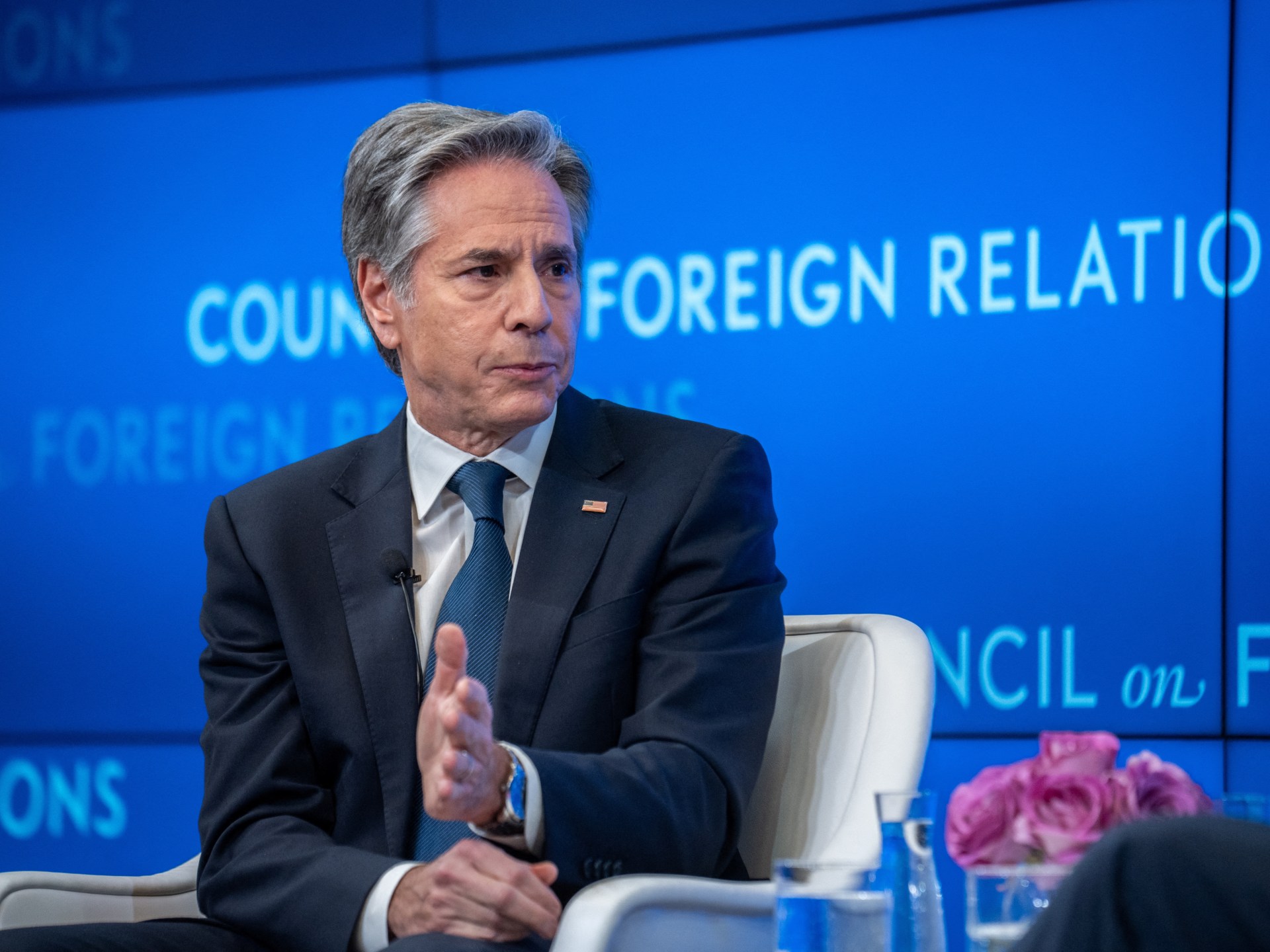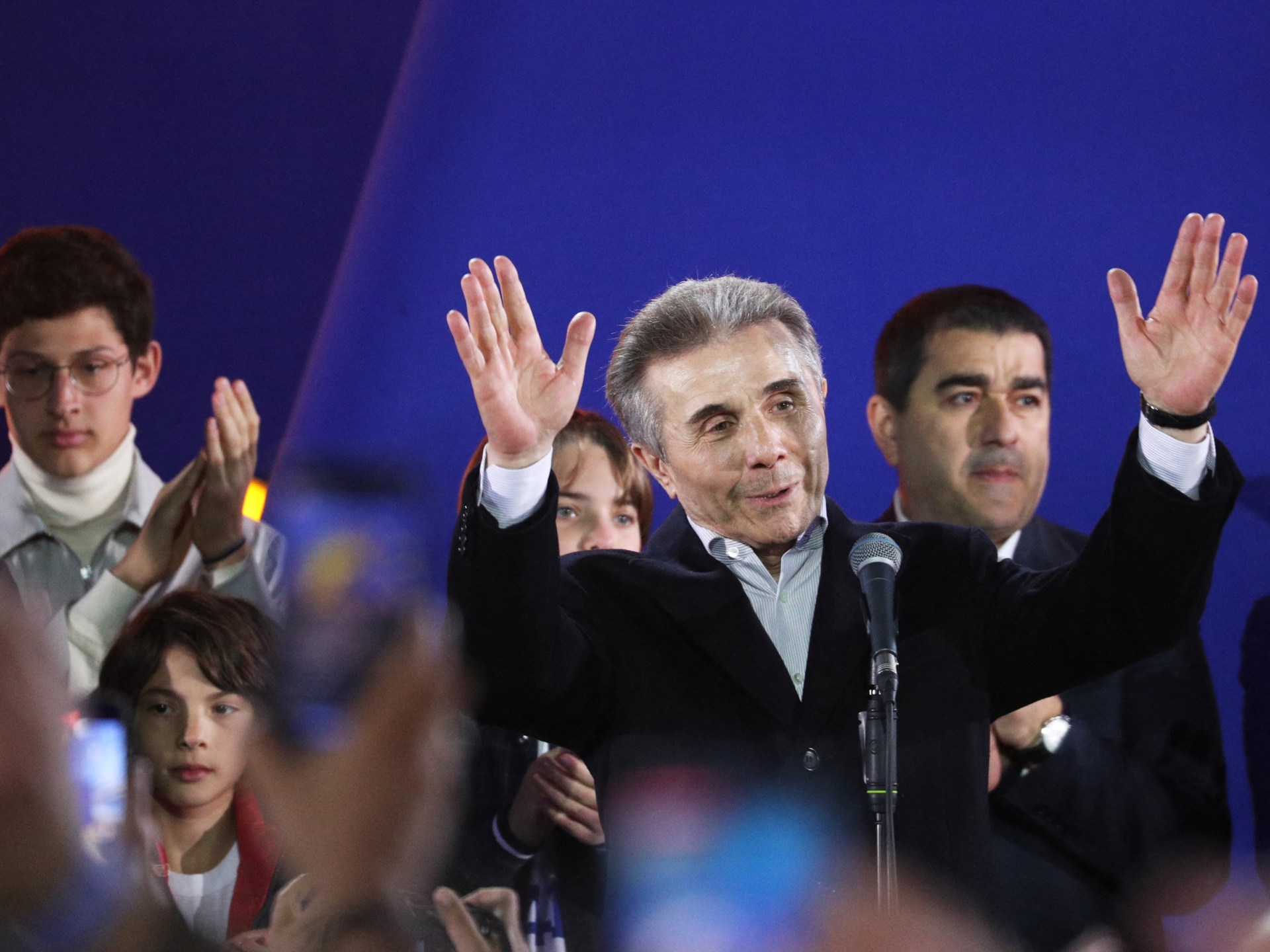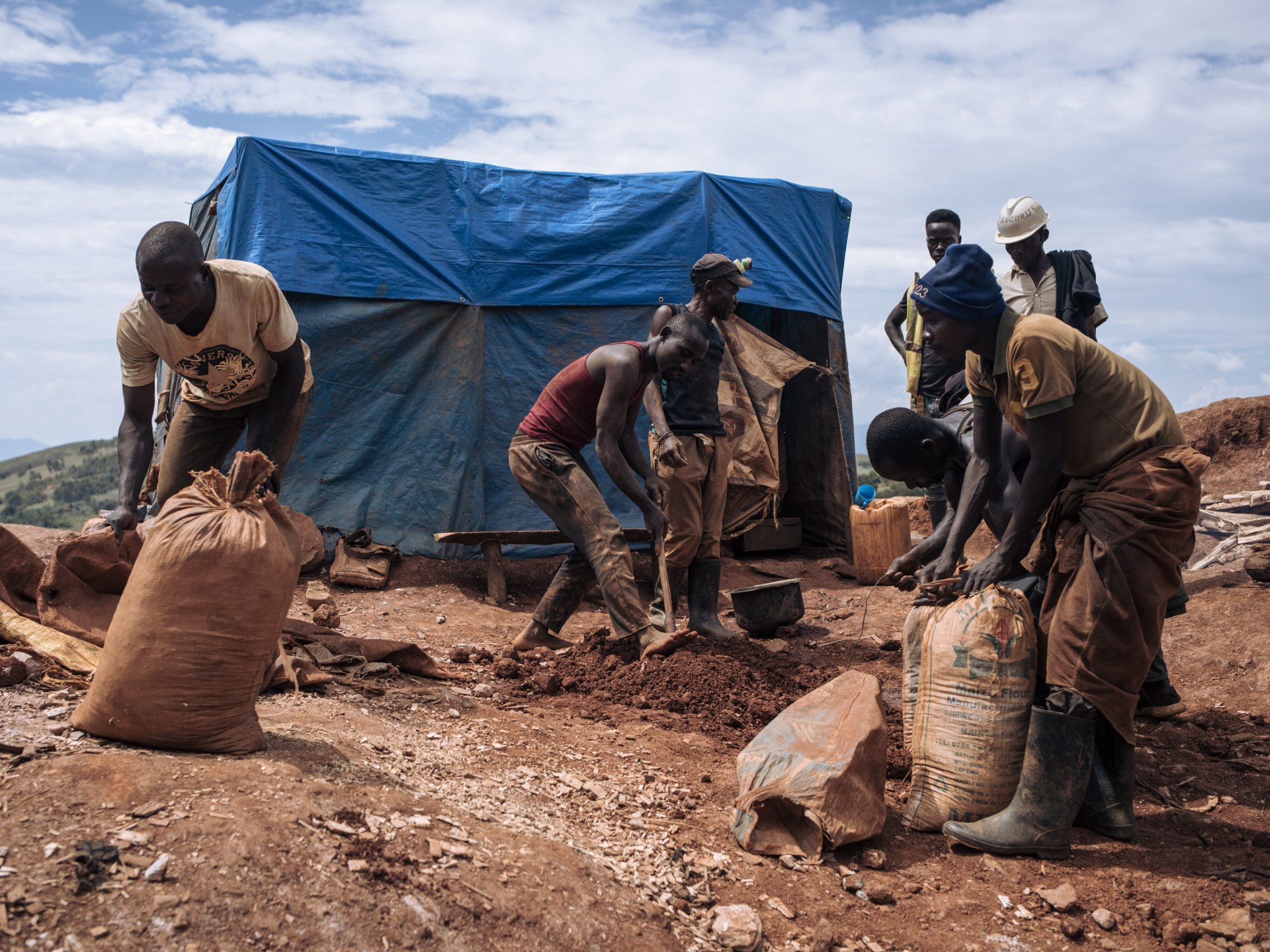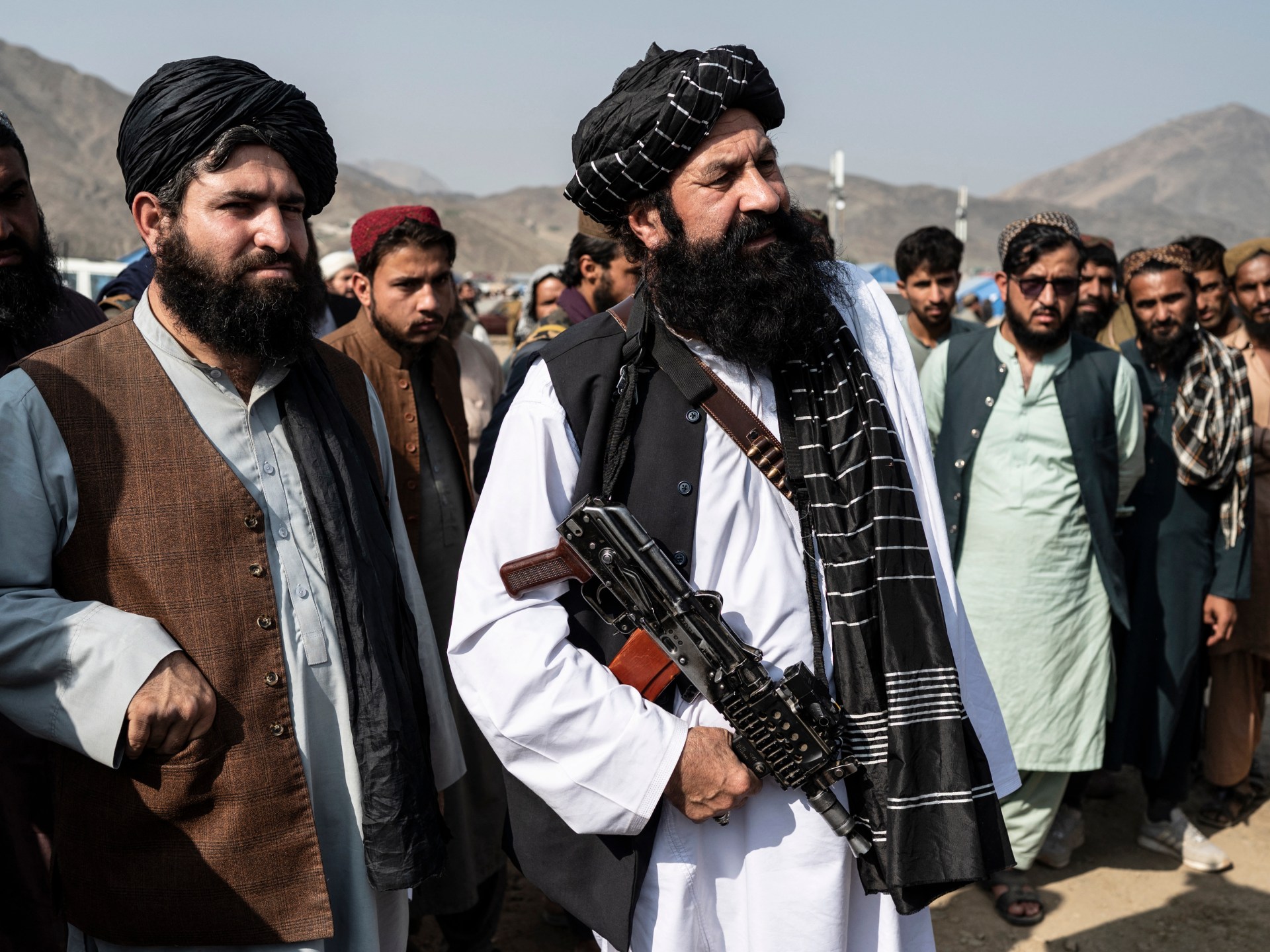

Washington, DC – The United States has suggested that Iran should rethink its foreign policy and focus on its economy after apparent setbacks this year.
Speaking at the Council on Foreign Relations on Wednesday, US Secretary of State Antony Blinken said Israel has succeeded in damaging Tehran’s allies, Hezbollah and Hamas, as well as Iran’s own military capabilities in a direct strike in October.
“There’s no doubt this has not been a good year for Iran, and we’re seeing that play out every single day,” Blinken said.
He added that now Iran has to make “fundamental” choices.
“One choice it could make and should make is to focus on itself and focus on trying to build a better, more successful country that delivers for its people … and to stop getting involved in these adventures or misadventures throughout the region,” he said.
With President-elect Donald Trump returning to the White House next month, Iran finds itself in a vulnerable position due to the losses suffered by its partners.
Meanwhile, Israel is pushing on with its onslaught in Gaza, which has killed more than 45,000 Palestinians. Following the fall of Syrian President Bashar al-Assad, Israel has also furthered its expansion into Syria, with plans to increase settlements there.
Advertisement
‘Axis of resistance’
Israel has also emerged from a 14-month war with Hezbollah with seemingly the upper hand after a ceasefire agreement required Hezbollah to withdraw its fighters from Lebanon’s south.
Hezbollah has long been considered the spearhead in a network of allies, known as the “axis of resistance”, that Iran helped build in the Middle East.
But the Lebanese group emerged badly wounded from the conflict, which culminated in 62 days of all-out war.
While Hezbollah managed to inflict damages on invading Israeli troops in southern Lebanon, Israel assassinated the group’s top military and political leaders, including its chief Hassan Nasrallah.
Moreover, Israeli officials have said that they wiped out a large part of Hezbollah’s rocket arsenal.
The ceasefire that came into effect on November 27 was supposed to end the hostilities, but the Israeli military has been conducting near-daily strikes in Lebanon, signalling that it intends to use force to prevent Hezbollah from rebuilding its military power.
Hezbollah, meanwhile, has claimed victory, arguing that it thwarted Israel’s project to completely eliminate it from Lebanon.
Nonetheless, analysts say a beleaguered Hezbollah means a weakened Tehran. The group may no longer be in a position to act as an effective force against Israel should a regional war involving Iran erupt.
Tehran’s regional influence was dealt another blow with the fall of President al-Assad, another ally. His government was toppled earlier this month after opposition fighters captured Damascus.
Advertisement
Still, Iranian leaders have projected defiance, rejecting claims that the “axis of resistance” has been defeated.
“With the developments in Syria and the crimes the Zionist regime is committing and the crimes that America is committing, and the help that some others are giving to them, they thought that the resistance was over,” Iran’s Supreme Leader Ali Khamenei said in a speech on Tuesday.
“They are completely wrong.”
On Wednesday, Iranian media outlets cited a top military official as saying that Iran will respond militarily to the Israeli attack in October.
Iran fired nearly 200 missiles at Israeli military bases on October 1 in retaliation for the killing of Hamas chief Ismail Haniyeh in Tehran and the assassination of Nasrallah in Beirut earlier this year.
Iran’s nuclear programme
But Israel’s increasing reach in the Middle East has sparked concerns that Iran may build a nuclear bomb to restore deterrence and protect itself from potential Israeli attacks.
Iranian leaders, however, have said repeatedly that the country is not seeking nuclear weapons.
Blinken said on Wednesday that an Iranian effort to get a nuclear bomb is “not inevitable”.
“This is something that may be more a question now because they’ve lost different tools. They’ve lost different lines of defence,” he said.
“Sure, you’re going to see more thinking about that, but the costs and consequences for them for pursuing that route, I think, would be severe.”
Blinken praised the 2015 nuclear deal that saw Iran curb its nuclear programme in exchange for lifting international sanctions against its economy.
Advertisement
Former President Donald Trump, who was re-elected to a second term in November, ultimately nixed the accord, formally known as the Joint Comprehensive Plan of Action, in 2018.
As the US reapplied sanctions on the Iranian economy and imposed more penalties, Iran began enriching uranium at higher levels, shortening the time to needed acquire the material for a nuclear weapon from months to weeks.
The outgoing administration of President Joe Biden engaged in indirect talks with Iran, but negotiations ultimately failed to revive the agreement.
With Trump coming into office next month, the US is expected to ramp up economic pressure on Iran even further.
Although the president-elect portrays himself as an antiwar politician, he has appointed several foreign policy hawks to key positions in his administration.
‘Prospect of negotiations’
On Wednesday, Blinken said diplomacy with Iran is still possible.
“There is the prospect of negotiations. Of course, it depends on what Iran chooses to do and whether it chooses to engage,” he said.
“And of course, the incoming administration will have to make a decision. President Trump last time around in pulling out of the deal, he said that he wanted so-called a ‘better, stronger deal’. So let’s see. I think that would be a better way to approach it.”
Blinken added that, no matter what US party is in power, Washington will always be committed to ensuring that Iran does not get a nuclear weapon.
Israel, the top US ally in the region, is widely believed to have an undeclared nuclear arsenal. Washington has provided billions of dollars in military aid to Israel, which has been accused by United Nations experts and leading human rights groups of committing genocide in Gaza.
Advertisement
Still, the US portrays itself as a defender of freedom and human rights in the Middle East.
While dealing with external threats, the Iranian government has had to contend with domestic antigovernment protests in recent years, which it met with a harsh security crackdown, according to rights groups.
When asked about the possibility of the US supporting Iranian opposition forces to oust the government in Tehran, Blinken urged caution.
“I think if we look at the last 20 years, our experiments in regime change have not exactly been resounding successes,” he said. “So, I think we have to have an appropriate degree of humility in focusing in that way on a problem.”
Related News

Ukraine sanctions Georgian leaders over crackdown on pro-EU protests

Why has DRC filed criminal charges against Apple over ‘conflict minerals’?

Five ‘Bali Nine’ ring members return to Australia after 19 years in prison


